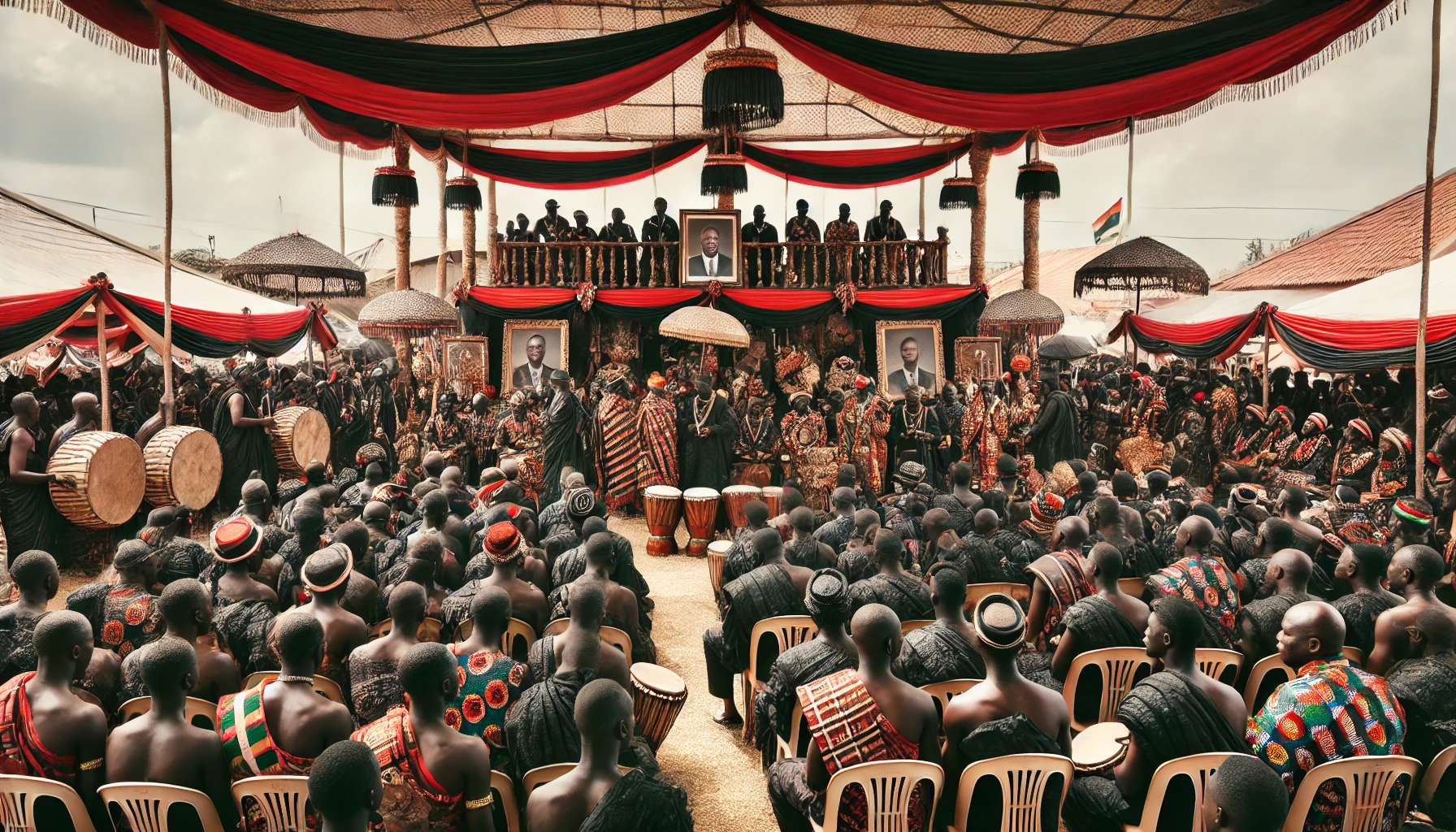The Effutu people of Winneba, inhabiting a thirty-square-kilometre area in Ghana with an estimated population of fifty thousand, observe a profound and intricate funeral tradition known as Edibo. This funeral performance begins at the moment of death and encompasses a series of ritualistic phases, reflecting the community's deep-seated beliefs in the afterlife and the importance of honouring the deceased.
Phases of the Edibo Funeral
The Edibo funeral is structured into three main phases: the Preparatory Phase, the Performance Phase, and the Climax and Resolution Phase.
Preparatory Phase:
This initial stage involves critical family discussions to determine the most appropriate manner to conduct the funeral. An official death announcement is made, and the body of the deceased is washed, symbolising purification and preparation for the subsequent rituals.
Performance Phase:
This phase is characterised by intense mourning, including wake-keeping and a series of elaborate rituals leading up to the burial. The community gathers to grieve collectively, performing traditional rites that honour the deceased's life and prepare their spirit for the journey to the ancestral world.
Climax and Resolution Phase:
The final phase occurs post-burial, marking the conclusion of the formal mourning period. This stage often involves additional rituals to ensure the deceased’s smooth transition to the afterlife and to bring closure to the grieving family and community.
Variations and Influences on the Edibo Funeral
The nature of the Edibo funeral can vary significantly based on factors such as social status, the circumstances of death, and cultural beliefs. Funerals for kings and those of royal lineage are markedly different from those of commoners. Similarly, deaths resulting from accidents, suicide, childbirth, suspected witchcraft, sorcery, or poisoning are treated distinctly from deaths caused by illness or old age.
Cultural and Spiritual Significance
The rituals embedded in the Edibo funeral performance are deeply rooted in Effutus traditional views and their belief in an afterlife. According to Effutu tradition, the afterlife mirrors the earthly world, and upon death, individuals are believed to join their ancestors. This belief in an ancestral realm underscores the importance of proper funeral rites, ensuring the deceased is honoured and remembered appropriately.
Conclusion
The Edibo funeral performance is a testament to the rich cultural heritage of the Effutu people of Winneba, reflecting their intricate beliefs and practices surrounding death and the afterlife. It is a ceremonial journey that not only honours the deceased but also reinforces the community’s connection to their ancestors and cultural identity.
Source: The information in this article is derived from detailed anthropological research on the funeral practices of the Effutu people of Winneba, Ghana.

